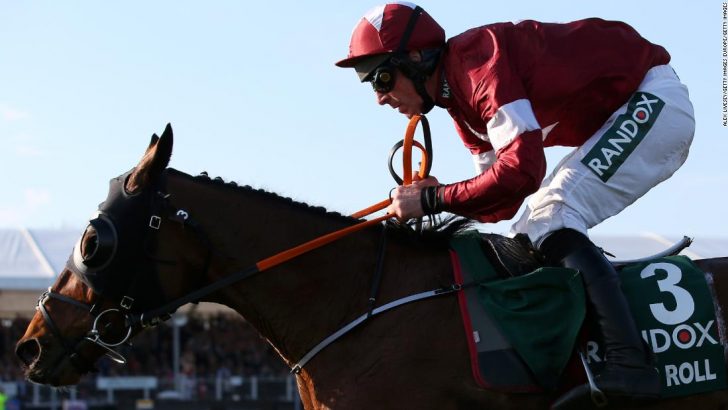The View
In recent times, there has been a media frenzy about Tiger Roll, the brave little horse that won the Aintree Grand National for the second time.
But the fact that a horse died at the Grand National, the Willie Mullins-trained Up For Review, has received far less coverage. The horse was seen writhing in pain before being put down. He was the third horse to die at Aintree this year. Two other Mullins-trained horses, Ballyward and Invitation Only, also died at Cheltenham in March.
The Grand National website says that on average, one horse dies every 250 races, although the death toll for the Grand National is far higher.
Even if a horse does not die, there can be serious injuries. Not to mention the number of injuries sustained by jockeys. Concussions and broken bones are common for jockeys although our rates seem to be lower than in Britain. Between 1950 and 2000, there were 100 fatalities among jockeys in Britain and Ireland.
A friend whom I respect recently recommended that I chat with Chris Fegan, general secretary for the UK organisation, Catholic Concern for Animals (CCA). In a polite but challenging way, CCA asks all of us to re-examine our assumptions about our relationship with the animal kingdom.
It advocates for vegetarianism and veganism and if that is a step too far, at the very least that we all consider reducing our consumption of animal products. It also raises questions about horse-racing. Chris Fegan visits Ireland this April for a number of meetings, including one about equine welfare.
Disturbing
I found the Grand National disturbing last week after talking with him. While these animals have been bred to race and such breeding has been going on for 300 years, the risks involved in a race like the Grand National seem unacceptable.
And yet horse-racing is a quintessentially Irish sport. It is an important industry and the people who work in it eat, sleep and breathe horses and seem to form genuine bonds of affection with their charges. I have even heard of young people whose lives seemed to be heading towards criminality but whose love of horses and working with the industry led them in a much more positive direction.
However, the gambling industry is also a huge industry. Before the Grand National, it was estimated that £250 million would be spent on bets. In fact, it could be argued that the racing industry would not exist without gambling. We all know the misery brought to families by compulsive gambling.
Balancing the genuine care for animals shown by many in the horse-racing industry with the danger of death or harm to animals is a hard thing to do. But while it is relatively easy for most of us to avoid entanglement in the horse-racing industry, consumption of animal products is something that many of us do every day.
Last week, my colleague whom I admire greatly, Mary Kenny, accused Leo Varadkar of being unpatriotic when he endorsed veganism.
I understand her viewpoint because I grew up on a farm and I understand the strains that are on farmers and the uncertainty that Brexit brings.
I also know the way that cattle which have been inside during the winter react when finally let out on grass. Their buck-leppin’, as it is called, reflects the pure joy of being set free.
There is no doubt that animals like cattle and horses are sentient. For example, horses suffer severely from loneliness unless they have an equine companion, even a donkey.
Yet currently, I could never imagine embracing veganism. My prejudice has been reinforced by the smug superiority of some vegans who have no problem endorsing abortion but bewail the deaths of animals. But it if can be argued that a consistent ethic for vegans would avoid all unnecessary deaths of animals, including human animals, that also presents a challenge for pro-life non-vegetarians and non-vegans.
Care for animals has always been part of the Catholic tradition and has been embraced by great saints like Francis. Even though it endorses using animals for food or clothing, the Catechism states that “it is contrary to human dignity to cause animals to suffer or die needlessly”.
Animal rights activists have interpreted this to mean that there is no longer any need for animals to die for food because a plant-based diet is both healthier for humans and better for the environment. Pope Francis has made concern for animals part of his ground-breaking encyclical Laudato Si’.
Even if becoming vegan is a step too far, there are many things we could all agree on that are part of the CCA agenda, for example, keeping animals in ethical conditions, reducing our overall consumption and having meatless Fridays all year round.
As Chris Fegan pointed out to me very reasonably, the first step is to begin thinking about the issue.


 Breda O'Brien
Breda O'Brien Tiger Roll won back-to-back Grand Nationals recently
Tiger Roll won back-to-back Grand Nationals recently 